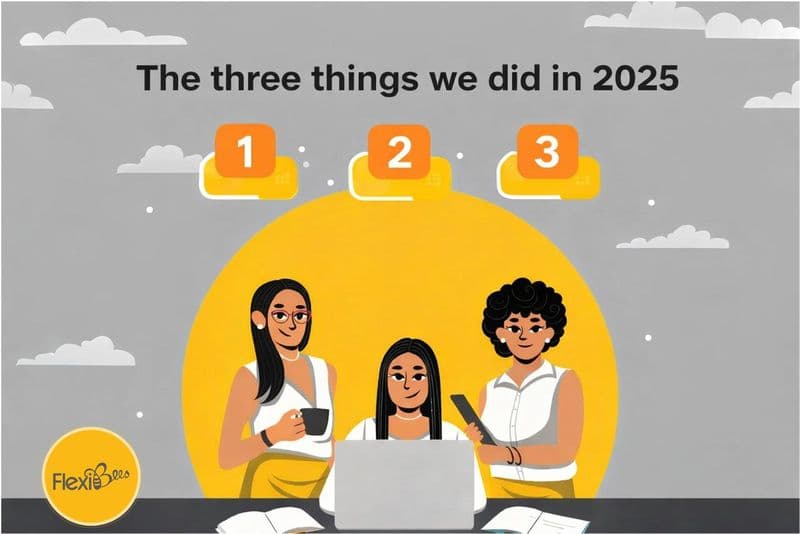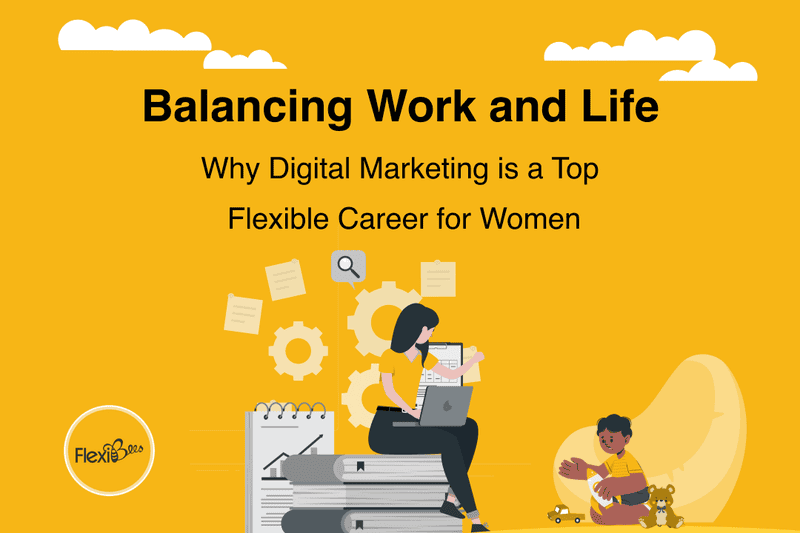Imagine a little Asian girl, sitting wide-eyed in front of the television, watching the Oscars, seeing people who look like her being celebrated for their talent and achievements. It's a powerful moment, one that can inspire a generation of young girls to pursue their dreams and break down barriers in their own lives.
Like many industries, the film industry has been a male-dominated one too. This is evident from the gender disparities in the number of films made by men versus women, the number of women represented in key positions like directors and producers, and the pay gap between male and female actors.
For example, a study conducted by the Center for the Study of Women in Television and Film found that in 2020, only 16% of the top 100 grossing films in the US were directed by women.
Closer to home, a study by FICCI and EY titled "The Era of Consumer A.R.T. - Acquisition Retention and Transaction" found that women constituted only 8% of directors and 2% of cinematographers in Indian cinema. Similarly, a study conducted by the Indian Film and Television Directors' Association (IFTDA) found that women directors constituted only 7.7% of the total directors in the Hindi film industry between 2013 and 2018.
While we celebrate the achievements of trailblazers like Michelle Yeoh, who at 60 years old became the first Asian-identifying woman to be nominated for best actress at the Oscars, we must also acknowledge the significantly low numbers of women represented in every industry and especially at the top levels.
What is happening here?
A slight segue: Merle Oberon, who was of mixed British and South Asian descent, technically earned a nomination for her work on the film “The Dark Angel” in 1935, she concealed her heritage out of fear of discrimination in Hollywood at the time.
One might think that was the 30s, and we are more evolved and open today. But a woman who has taken a sabbatical or a break owing to her life circumstances still has to explain herself, often in an apologetic way.
Maybe women are not so openly discriminated against today, but when there is a gap in their resumes, questions are still asked, eyebrows raised, and explanations demanded. Owing to this kind of ‘discrimination’ and being unable to always clearly articulate the need for flexibility, women are dropping off the workforce.
So hence, there are fewer women to compete and move up the ranks. It is simple math.
Many organizations and employers still view work-from-home or flexible working options as a privilege. This perspective is changing, yes, and the pandemic did accelerate that change. But we need to keep pushing the envelope and design systems that help more women enter the workforce, help them stay in and enable them to get back after a career break.
That is why the success stories of the women who made it are so important.
That is why the success stories of the women who made it are so important.
The Story of Michelle:
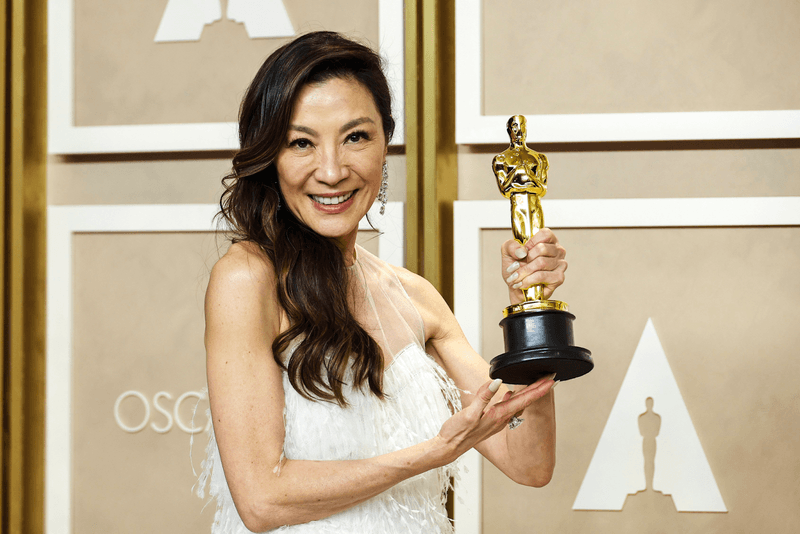
Michelle Yeoh has made history by becoming the first Asian woman to win the Academy Award for Best Actress. Her victory for her performance in the multiversal film “Everything Everywhere All at Once” sends a beacon of hope and possibility to all little boys and girls who look like her.
“For all the little boys and girls who look like me watching tonight, this is a beacon of hope and possibility. This is proof that dreams dream big and dreams do come true,” she said. “And ladies, don’t let anyone ever tell you you’re past your prime.”
Yeoh's win is a significant milestone for Asian representation in Hollywood, especially in a year when Black women were shut out of the Best Actress category.
In her speech, Yeoh dedicated her award to her mother and all mothers in the world, often discounted and in the background, highlighting their superheroic role in our lives. Her win was well-deserved, as she gave a nuanced and powerful portrayal of an immigrant Chinese wife, mother, and laundromat operator in the face of a tax audit. Yeoh's incredible career has spanned several decades and genres, from her early work in kung fu cinema to Hollywood hits like “Crouching Tiger Hidden Dragon” and “Tomorrow Never Dies.”
At 60 years old, Yeoh shows no signs of slowing down, and her victory at the Oscars proves that dreams do come true if we dare to dream big.
The Story of Ruth E Carter:
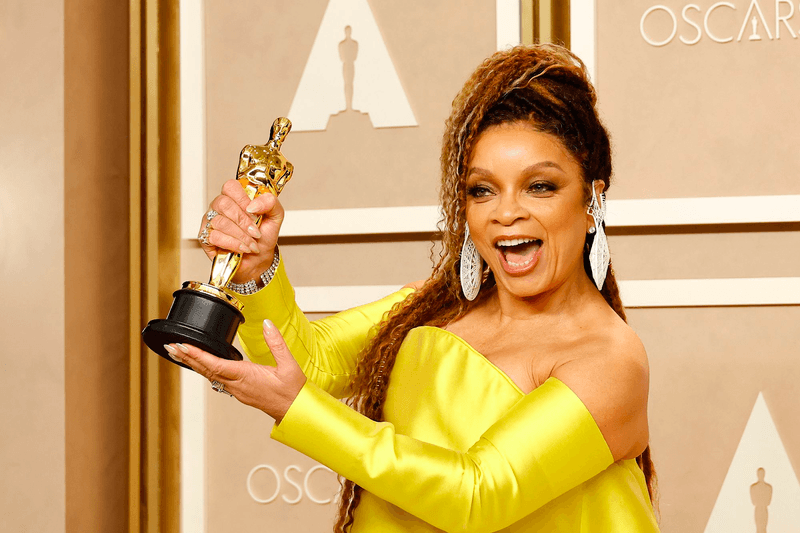
Ruth E. Carter makes history by becoming the first black woman to win two Oscars!
Ruth E. Carter is a trailblazer in the world of costume design. She made history at the 95th Academy Awards by becoming the first black woman to win two Oscars for Costume Design. Carter’s work on the superhero movie “Black Panther: Wakanda Forever” earned her the prestigious award. She previously won the Oscar in 2019 for her work on the original “Black Panther” movie.
Carter has been in the industry for over three decades and has worked on over 60 films, including “Do The Right Thing,” “Malcolm X,” and “Selma.” Her designs have become iconic and have influenced fashion and culture.
"I pulled myself up from my bootstraps. I started in a single-parent household. I wanted to be a costume designer. I studied, I scraped, and I dealt with adversity in an industry that sometimes didn't look like me. And I endured,” she said.
“So I feel that this win opens the door for other young costume designers that may not think this industry is for them and hopefully they'll see me and see my story and they'll think that they can win an Oscar too."
Carter’s win is a significant milestone in Hollywood, where black women are underrepresented in key roles both in front of and behind the camera. Her work has broken barriers and paved the way for more diversity and inclusion in the film industry.
Carter’s contribution to the film industry goes beyond just costume design. She has used her platform to inspire the next generation of artists and designers. She has also worked to support and uplift black creatives through mentorship and advocacy.
With two Oscars under her belt, Ruth E. Carter’s legacy is secure. Her work will continue to influence and inspire generations to come.
The Story of Rihanna:
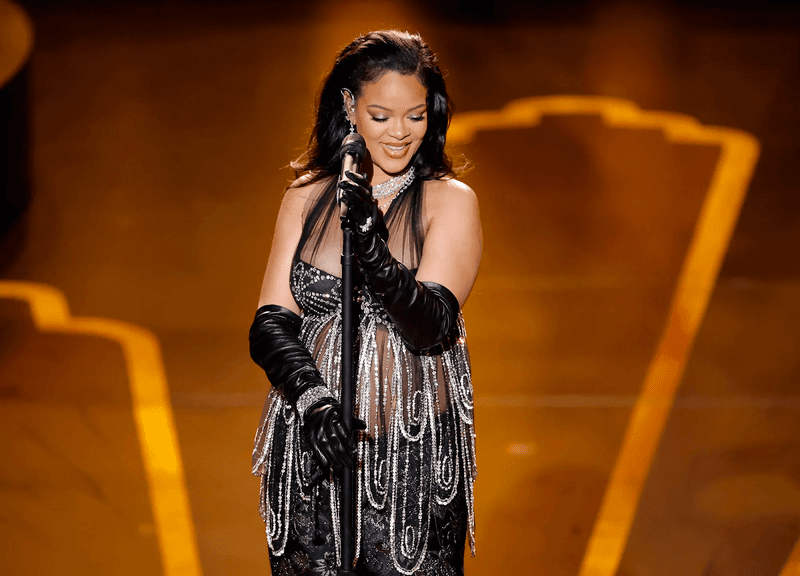
Rihanna made history at the 2023 Oscars as the first black woman to perform a song from Black Panther and earn her first Oscar nomination. But what's even more remarkable is that she did it all while pregnant.
The singer, who announced her pregnancy just a few months before the ceremony, took to the stage to perform "Lift Me Up" from the film's sequel, Black Panther: Wakanda Forever. Written as a tribute to the late Chadwick Boseman, the ballad was a poignant moment in the ceremony, and Rihanna's stunning vocals left the audience in awe.
Rihanna's performance and nomination at the Oscars are just the latest milestones in her career, which has spanned over a decade and includes numerous awards and accolades. But her ability to break barriers and inspire others is what truly sets her apart. Her performance was a testament to her strength, resilience, and talent. And her nomination was a historic moment for black women in the music industry.
As a woman, a black person, and a mother-to-be, Rihanna has shown that anything is possible with hard work, determination, and a little bit of magic.
The Story of Guneet Monga & Kartiki Gonsalves:
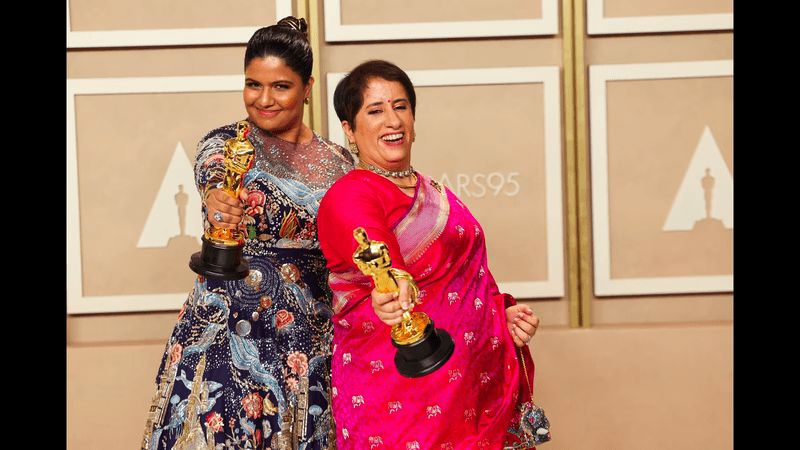
Kartiki Gonsalves and Guneet Monga made history at the 95th Academy Awards, becoming the first Indian filmmakers to win the Best Documentary Feature for their film "The Elephant Whisperers". The film documents the extraordinary story of a group of Indian villagers who work together to save elephants in their community from being killed by poachers.
Both Gonsalves and Monga were ecstatic about their win, which they dedicated to the people of India and the elephants. Speaking to reporters after the ceremony, they emphasized the importance of telling stories from their country that resonate with global audiences.
What we wanted to do with this film was to show the world that India is a place of great beauty and resilience and that the people here are capable of incredible things
Monga, who is known for producing critically acclaimed Indian films like "The Lunchbox" and "Masaan", spoke about the challenges of making a documentary film in India, where the genre is still relatively new. "It was not easy to convince people to invest in this film, or to find the right team to work with," she said. "But we believed in the story, and we knew that if we could get it right, it would be something truly special."
For Gonsalves, who comes from a small village in Goa, the win was particularly meaningful. "I never thought I would be standing on this stage, representing my country and telling a story that is so close to my heart," she said. "I hope that our win will inspire other young filmmakers in India to tell their own stories and to believe in their own talent."
The pair's win is also significant for women in the film industry, especially in India where the industry has historically been male-dominated. Gonsalves and Monga's success sends a powerful message about the importance of diversity and representation in filmmaking.
Furthermore, Gonsalves and Monga's win shows that being a woman and breaking barriers is possible in the entertainment industry. Their dedication and passion have earned them this prestigious award, and their work has brought recognition to Indian non-fiction filmmaking.
Conclusion
The stories of Michelle, Ruth, Rihanna, Guneet, and Kartiki are all inspiring examples of the resilience, determination, and talent that women bring to their fields. Despite facing significant obstacles, these women have excelled and made history in their respective industries.
However, these stories also underscore the need for more opportunities for women to excel. It's crucial to create a level playing field that allows women to thrive and fulfill their potential. This means providing equal pay, addressing gender bias and discrimination, and creating more opportunities for women in leadership positions.
We need to create more opportunities for them to excel, break down barriers, and provide them with the support they need to succeed. At FlexiBees, we empower women to excel in the workplace by offering flexible and remote work options. We believe that by helping women work on their own terms - flexibly, part-time, etc. - we enable them to balance their professional and personal lives. This way, women can pursue their careers while still fulfilling other responsibilities, and not having to choose between a career and a family.
We are proud to be a part of this movement and are committed to creating a better future for women in the workplace. Drop us a line if you want to empower the women in your teams.

